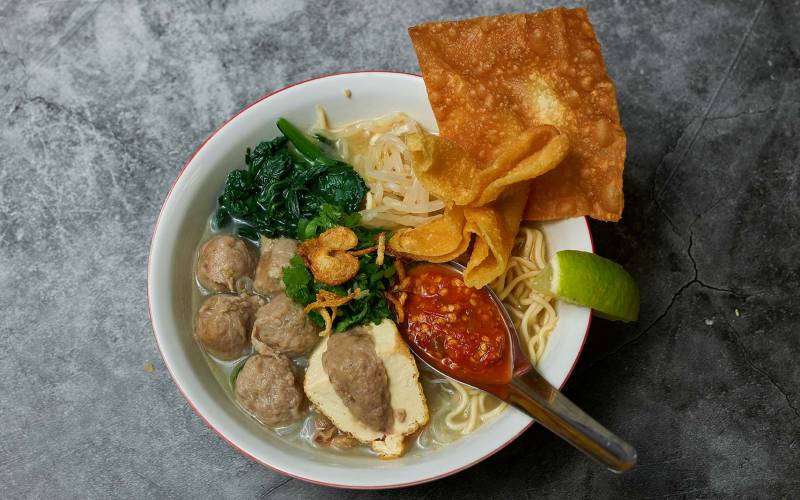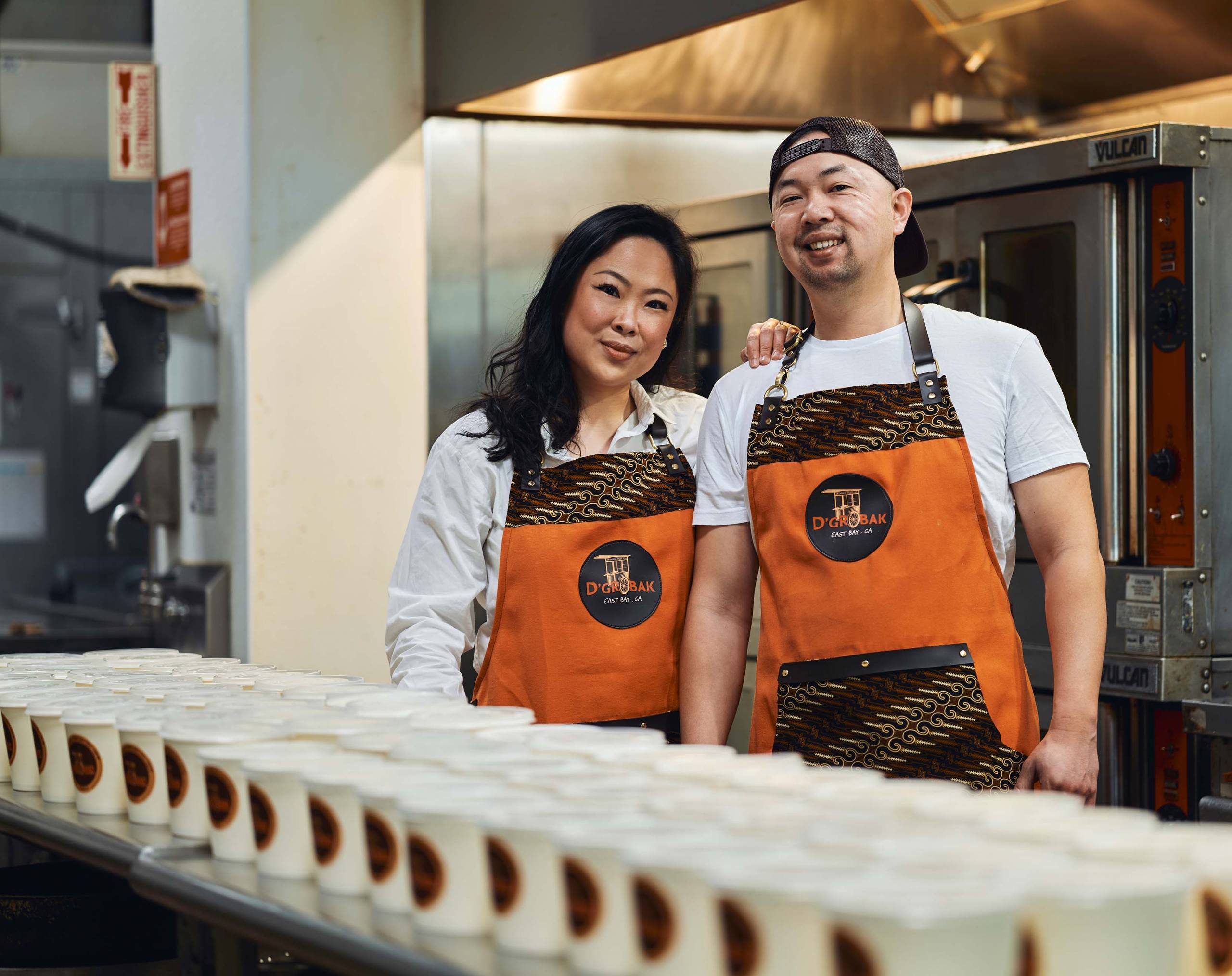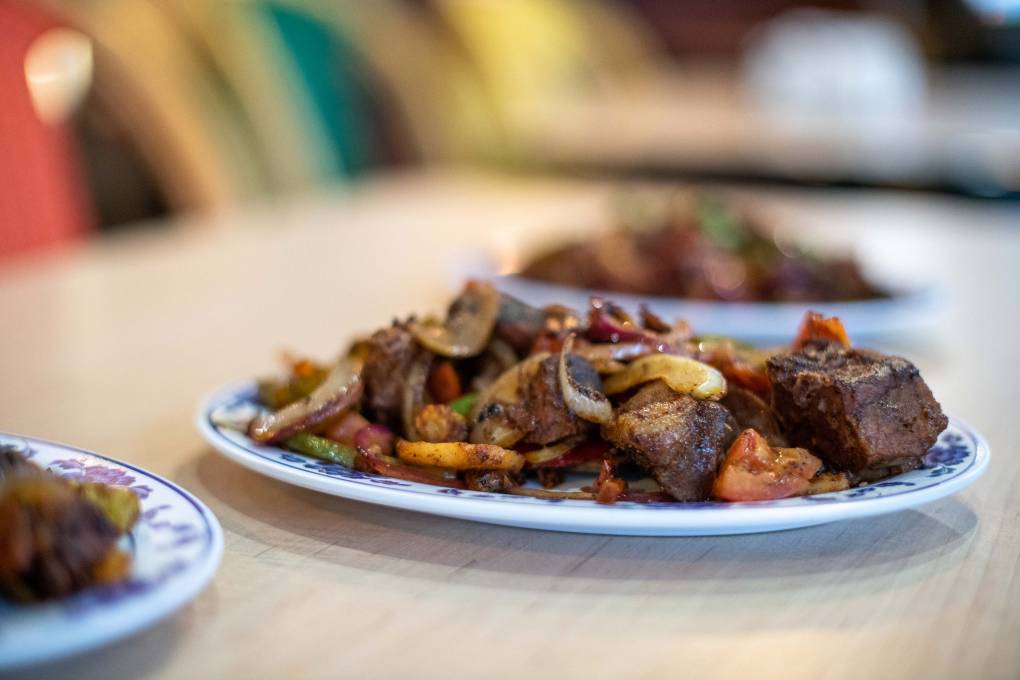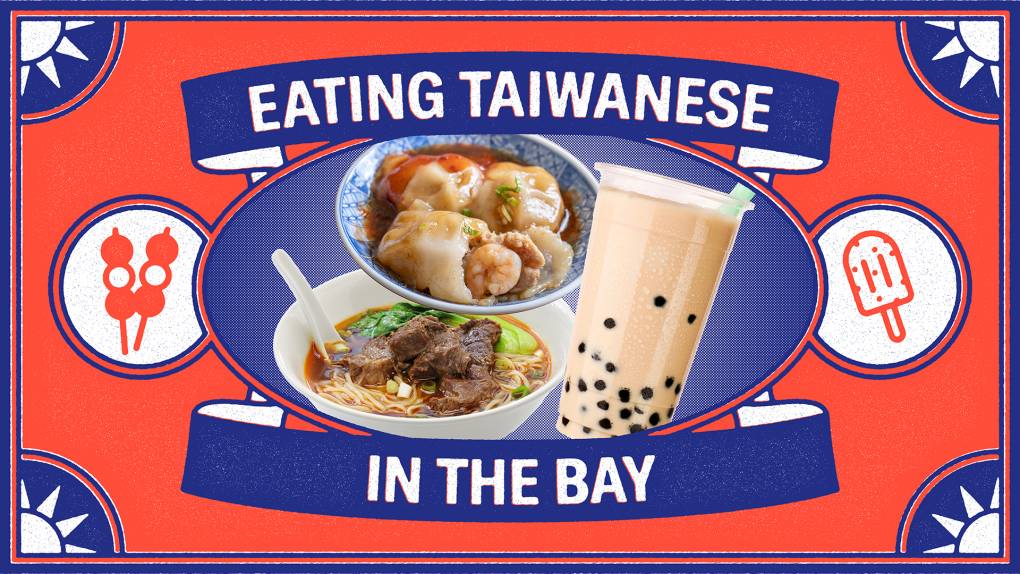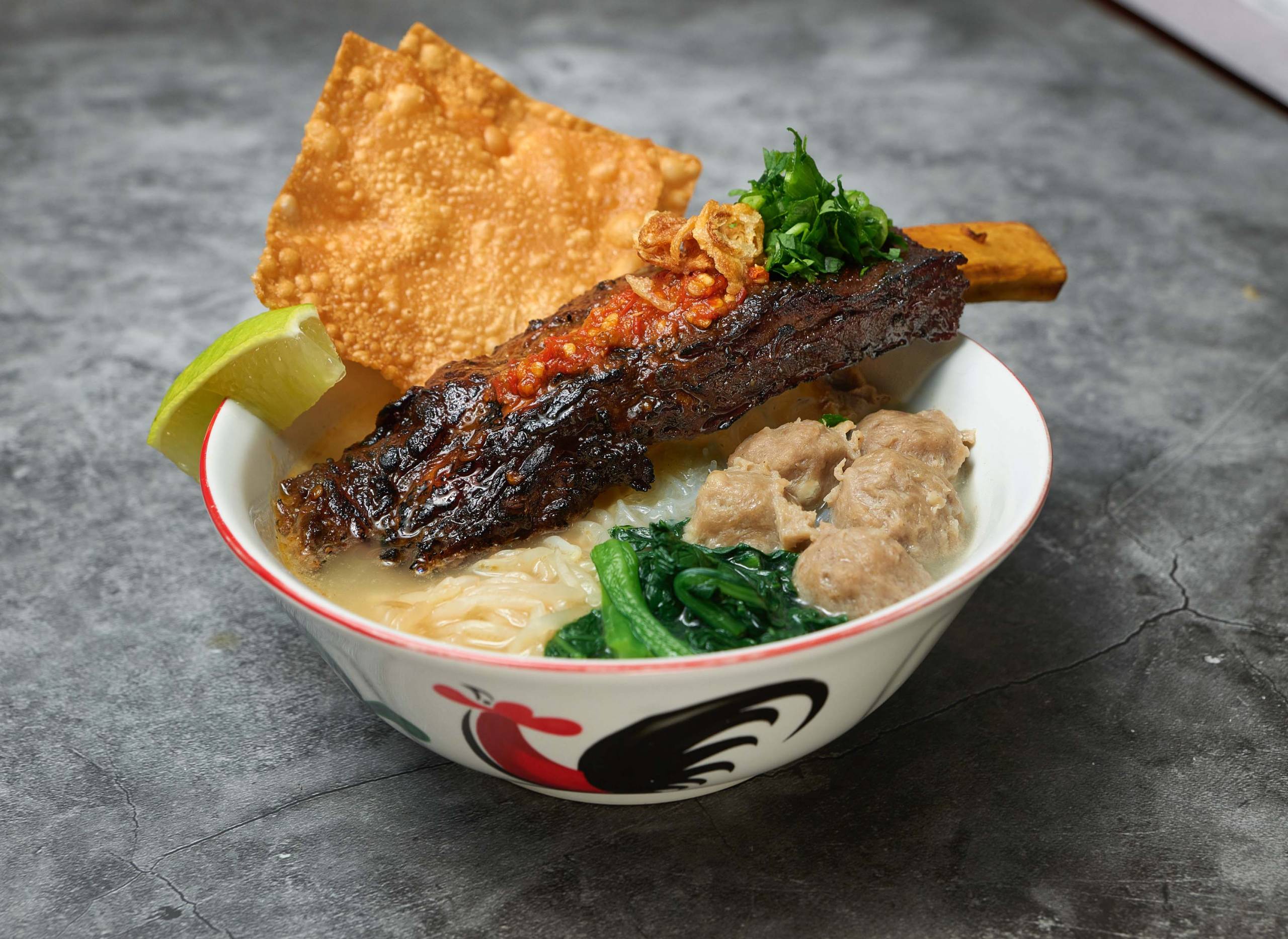Like so many of the Bay Area’s singular food experiences, D’Grobak started with a craving. Back in Indonesia, Christna Lim and Yohanes Ng would buy the meatball noodle soup known as bakso from street vendors multiple times a week. But they couldn’t find the dish here in the Bay.
“We said, ‘Let’s create some bakso because we miss bakso,’” Lim explains.
Ng, whose day job is at a sushi catering company, already had a reputation as a skilled cook within the couple’s circle of Indonesian friends. One year of experimentation later, he’d nailed down the recipe for a version of the soup that’s popular in the city of Surakarta, made by simmering marrow bones for 12 hours until the broth turns as cloudy-white as a rich tonkotsu ramen. When he served his bakso to friends, they couldn’t stop talking about how much it reminded them of home. “Why don’t you sell it?” they said. When the pandemic hit, Lim and Ng decided to give it a shot.
Now a weekly pop-up restaurant, D’Grobak (pronounced “the Growbuck”) holds in-person events every other Saturday at various locations. (The next one will be on Saturday, Feb. 12, 11am–4pm, at Lilikoi Boba in San Francisco.) On the Saturdays in between, Lim and Ng sell bakso to pre-order customers out of their commissary kitchen in Richmond, where they live.
D’Grobak has a growing fan base thanks in part to a shoutout in the San Francisco Chronicle last summer and strong word of mouth within the Bay Area’s tight-knit Indonesian community—and, most of all, because the bakso is delicious. The basic version features two different kinds of noodles (vermicelli and egg noodles); jiggly, soft-cooked tendon; and the “bakso” itself—bouncy, hand-rolled beef meatballs, some of which are stuffed in tofu or wrapped around a boiled quail egg.
